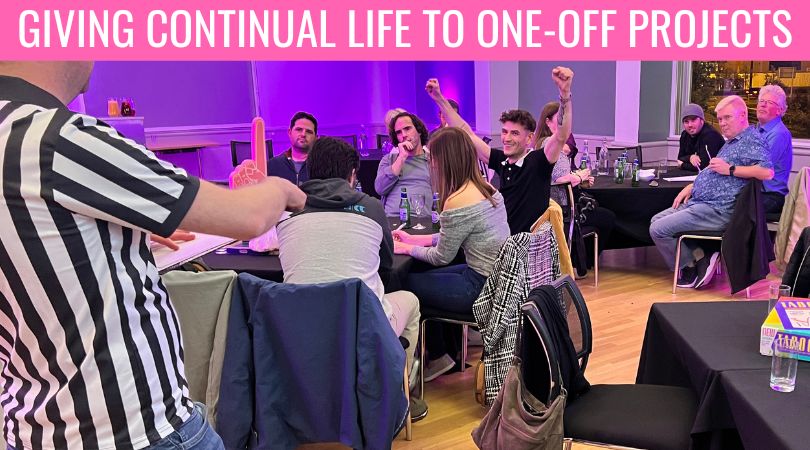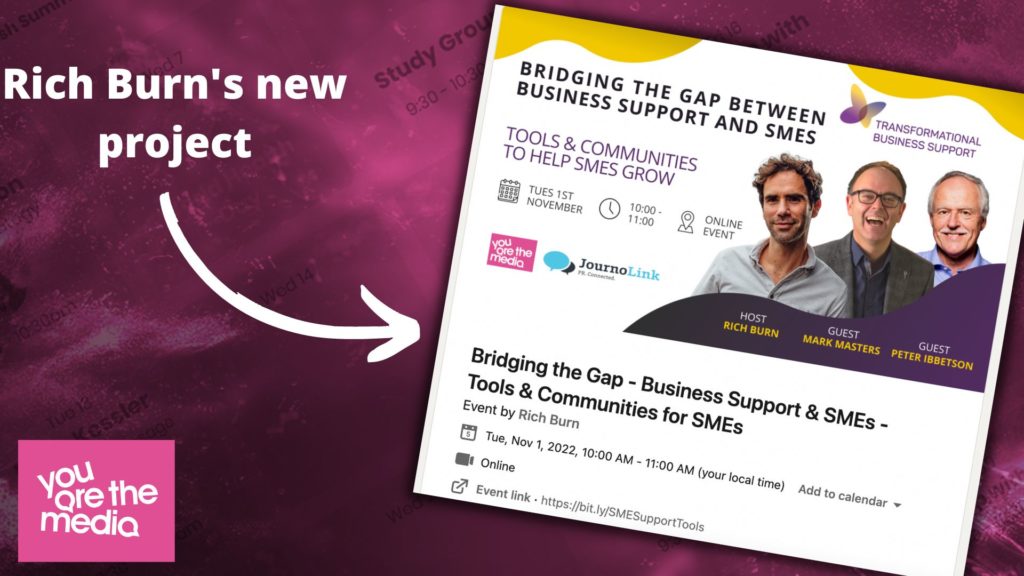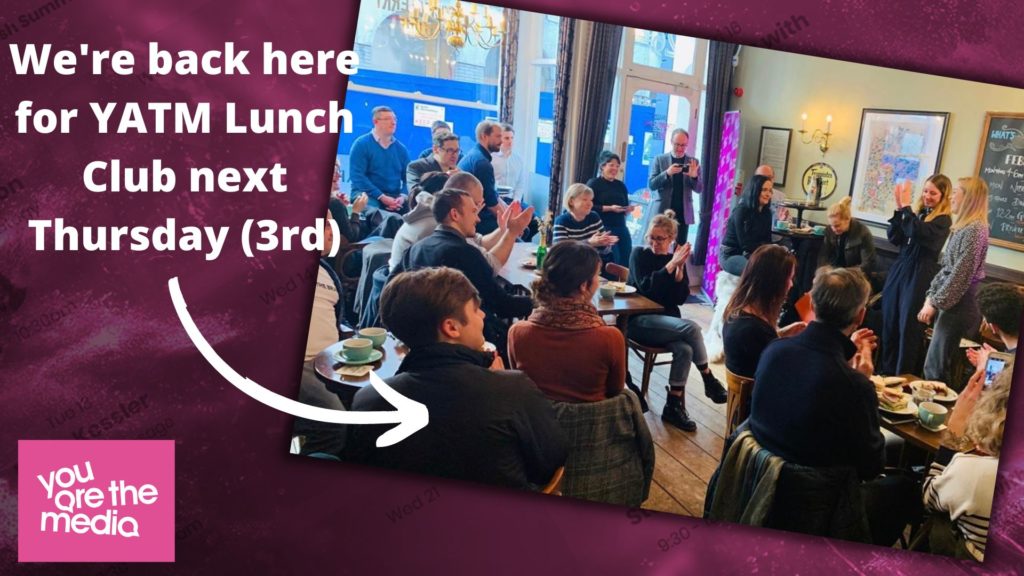How To Give Continual Life To One-Off Projects

When you have the flexibility to add more to an initial project, you keep going and you grow.
Project work keeps you tied into something as you aim for a delivery date. Why not take away the end date and have the flexibility to progress and discover more from the initial effort?
This article’s message is, don’t think in projects but continual processes and outcomes, that can result in even greater success further down the road.
Let’s start by helping to define.
💥 A project is defined as ‘an individual or collaborative enterprise that is planned to achieve a particular aim.’
💥 A project could include a webinar, newsletter, blog, course, video, workshop, book, or live event
💥 Keeping going means that you don’t stop when you have delivered. You find more ways to connect. Why waste the skills you have nurtured and progress ie. the workshop you delivered becomes the newsletter, the webinar becomes the live event. You are focused on the initial audience who are with you and build from that.
Work Doesn’t Have To Finish, It All Can Link
Project-based creators can develop that consistency muscle. You have to build, but don’t decide to finish, or walk away from your project.
Don’t think of your work as projects, think of it as an ongoing effort that can breath new life into other disciplines.
For instance, Rich Burn is about to launch a new initiative aimed at local authorities and wider organisations on cost-effective tools to help with SME growth. It’s going to start as an online event, but Rich has aspirations to broaden and find ways that go beyond delivering an online event.
This could be creating a LinkedIn Group for participants to click on a button and join whilst they are in the sessions. The aim is to find ways to keep the conversation going and connect with like-minded peers.
This is proof that we can’t just think in silos around promoting an event, delivering an event and then moving onto the next event. There are ways to build an audience that can lead to something much more substantial and for people to become familiar with.

What I want to highlight here is that managing and delivering projects are extremely important, but we don’t spend much time widening the net and looking at ways to complement the initial activity.
Great projects shouldn’t stop, they should have time to shift and grow. They become your thinking allotments. You take something new away every time and then plant new thoughts and aspirations. What you introduce complements the environment and you keep planting, going and growing. When they don’t work or you fail to see a return, you make the decision to end.
When you are starting out, it always helps to outline your project. Similar to Rich, he outlined the audience he wants to reach and the scope of information that can be of value (tools/places/resources that are readily available that people may not know about) and the medium he would deliver (video). Next week, Rich is going to start. He’ll then discover feedback, and ideas that he can apply further that become the new inspiration for people to join in with.
Thinking In Projects Can Limit You
One of my biggest projects was to write a book, called the Content Revolution (in 2015). The problem was, I treated it as a project in isolation and did not nurture my allotment to grow and find new ways to spread. If the book was called You Are The Media, then perhaps it would still be relevant today.
Similar to many projects you see, they don’t connect or find ways to progress. For instance, when you start with an idea you want to execute, it can be an ego rush. This is why people fail when they don’t give time to adapt and adjust. The project is completed and you move on to something new.
New Projects To Share With You
We are about to restart YATM Lunch Club in Bristol, but approaching this as more than a project, but the thinking allotment approach. Let me share it with you.

Pilot in 2022 – we have our first event on November 3rd. The cost is to cover lunch for everyone and we’re going to have a central topic and surrounding that with segments for people to get involved with ie. sharing how they are progressing, and the struggles that others might have.
Start official in 2023 – this is via a committed programme, that could be bi-monthly with a main guest/topic and people become familiar with each other.
Ways to progress – a live, lunchtime YATM event where people receive a weekly newsletter (every Thursday) can help to cement further bonds when it comes to a theme of creating an audience-first business. As more people join in, there are ways to develop offline, in Bristol, such as workshops and the YATM Creator Day and also online via the new YATM Club.
YATM is the allotment where ideas and multiple projects can grow, but you have to get your hands dirty. Finding success is not down to starting and ending a project, it’s the participation with others that matters. It can be messy, random at times, tricky and one long complicated squiggly line.
What Can You Do To Think Beyond One-Off Projects?
Looking at the wider opportunities that tie back to a central delivery is where you find longevity, success and a spirit to keep going.
Here are some thoughts to consider and what you can do.
Find ways to keep going.
If you are creating a workshop, are there ways to progress once delivered? Are there attachments to the workshop, such as interviews to share with the group or a newsletter that ties to the central message to help generate your wider audience?
Think of the project as the start, not the end.
When you have delivered what you set out to complete, you have a finished product but you also have a project in its infancy.
Your thought process is going to change.
When you think beyond the original project, you find new skillsets and evolve your thinking. You start to find better habits such as new knowledge and insights to share. Your idea and project develop alongside you.
Find responsibility.
As the whole initiative develops ie. what started as a book becomes a podcast and then a live event, you realise that what was all on you, isn’t sustainable. Is there a way to build a team that has the same enthusiasm? This is not about dictating what you want to happen, but the magic of handing responsibility over to others.
Have an objective you can focus on.
It doesn’t help when you progress with no real target. This is where consistency can become a bind, by just blindly doing. Understand what you want. It could be to encourage subscribers, it could be to change thinking, it could be buy in from a new audience, it could be to lead people to a central space where others congregate.
Lean into the new skillsets you form.
What could start as delivering webinars and being a capable presenter could become developing skills as a better writer. You cannot ignore the ability to self-learn and find confidence in new areas. You never know the skills that are hidden away that you actually possess.
Let’s Round-Up
Individual projects can grow to form something that carries far more weight than the original intentions.
Don’t look at a project in isolation, recognise the branches and the shoots of life that can appear to help you make a far bigger impact. A book shouldn’t just remain words, a webinar shouldn’t just be a screen to pay attention to, an in-person event shouldn’t just be a way to bring people together.
Identify how you can make even tighter bonds with your audience and make your project the beginning, not the end of your original intentions. Create a project, then find the threads, gain the knowledge and the extended media to provide multiple outcomes. It feels good when you see a project have a continual life.
LET ME READ TO YOU THIS ARTICLE
Podcast: Play in new window | Download


